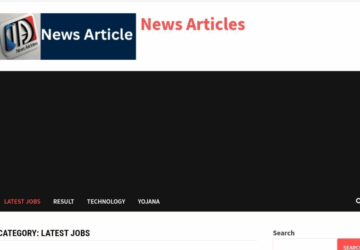In today’s dynamic business landscape, financial management is a linchpin of success, with lease accounting being an integral component. While traditionally, lease accounting was a manual, time-consuming, and error-prone process, technological advancements have now paved the way for lease accounting software. This software is revolutionizing the way businesses manage their leasing portfolios, driving efficiency, accuracy, and strategic insights. In this article, we will delve into the multifaceted benefits of utilizing lease accounting software, establishing how this tool can catalyze your financial management process.
1. Streamlined Processes and Efficiency
Lease accounting software significantly streamlines the lease management process, saving businesses valuable time and resources. With an intuitive interface, the software allows users to input lease data, automatically calculate payments, generate financial reports, and manage lease renewals, expirations, and modifications. This automation eliminates the need for time-consuming manual data entry and calculations, freeing up employees to focus on strategic tasks that drive business growth
2. Enhanced Accuracy and Compliance
One of the most critical benefits of lease accounting software is the improved accuracy it offers. Businesses often juggle multiple lease agreements, each with its unique terms and conditions. Manual tracking of these leases can lead to errors, resulting in financial inaccuracies, potential fines, and reputational damage. Lease accounting software automates this process, drastically reducing human error and ensuring adherence to standards such as ASC 842, IFRS 16, and GASB 87.
Speaking of GASB 87, this standard concerns lease accounting in government organizations. It requires recognizing certain lease assets and liabilities for leases previously classified as operating leases. In a landscape where regulatory compliance is paramount, lease accounting software ensures that all leases are accurately classified and reported, offering peace of mind and reducing the risk of non-compliance.
3. Centralized Data Management
With lease accounting software, businesses can centralize all their lease data, offering a single source of truth. This centralized system eliminates the risk of data inconsistencies across different platforms and ensures that all stakeholders have access to the most up-to-date and accurate lease information. Moreover, it simplifies data retrieval, enabling quick and easy access to any lease data when needed, a feature especially useful during audits or financial reviews.
4. Real-time Reporting and Analysis
Lease accounting software provides real-time reporting and analysis capabilities. It generates comprehensive reports that offer insights into lease obligations, costs, terms, and more. These reports are crucial for financial planning and decision-making.
5. Scalability for Business Growth
As businesses grow, their lease portfolios often expand, adding complexity to lease management. Lease accounting software is scalable, adapting to changing business needs. Whether your business portfolio includes ten leases or thousands, lease accounting software can manage them efficiently.
6. Cost-Effectiveness
While there’s an upfront investment associated with implementing lease accounting software, the long-term cost savings are substantial. The automation reduces labor hours spent on manual lease management tasks, resulting in significant payroll savings. Furthermore, the software’s accuracy reduces the risk of costly errors or non-compliance fines. Finally, the strategic insights provided by the software can lead to more favorable lease terms, potentially saving businesses a significant amount of money.
7. Improved Security
Lease accounting software provides robust data security, safeguarding sensitive lease and financial information. Most software solutions are cloud-based and utilize industry-leading encryption and security protocols. This level of security is typically far superior to what businesses could provide in-house, reducing the risk of data breaches and ensuring that sensitive financial information remains confidential.
8. Environmental Friendliness
By digitizing the lease management process, lease accounting software supports environmental sustainability efforts. It reduces the need for physical documents and storage space, cutting down on paper consumption and associated waste. This eco-friendly approach aligns with the growing trend towards sustainable business practices, helping businesses reduce their environmental footprint.
9. Improved Stakeholder Communication
Lease accounting software can also enhance communication and collaboration among stakeholders. It allows for real-time updates and provides a centralized platform where stakeholders can access and share lease data. This feature facilitates transparency and efficient communication, particularly in larger organizations where multiple departments might be involved in lease management. It ensures everyone is on the same page, reducing misunderstandings or miscommunications.
10. Future-Proofing Your Business
Investing in lease accounting software is a strategic move towards future-proofing your business. As the regulatory environment becomes increasingly complex and the volume of leases grows, manual lease management will become even more challenging. Implementing lease accounting software prepares your business for these future challenges, ensuring you have the tools and systems in place to manage leases efficiently and effectively, no matter what the future holds.
11. Seamless Integration with Existing Systems
One of the significant benefits of lease accounting software is its capability to integrate seamlessly with existing systems. This means it can work in tandem with other financial or ERP systems your business already employs, creating a unified, efficient environment for all your data management needs. Such integration eliminates the need for duplicate data entry, reduces the risk of inconsistencies, and provides a comprehensive view of your financial position. It also simplifies the user experience, as employees can navigate familiar interfaces while leveraging the added functionalities of the lease accounting software.
12. Real-time Analytics and Insights
Lease accounting software doesn’t just store and organize lease data; it turns that data into actionable insights. Equipped with advanced analytics capabilities, this software can generate real-time insights into your lease portfolio. It can identify trends, highlight opportunities for cost-saving, and alert you to potential risks. For example, it can flag nearing lease expirations, giving businesses the chance to renegotiate terms or explore other options. By providing these insights, lease accounting software enables proactive lease management, empowering businesses to make strategic, data-driven decisions that enhance their financial performance.
Conclusion
As we navigate the intricacies of the modern business landscape, the strategic importance of efficient and effective lease management cannot be overstated. Lease accounting software emerges as a vital tool in this context, offering myriad benefits that extend beyond operational efficiency. Its enhanced accuracy and compliance capabilities, real-time analytics, seamless integration with existing systems, and scalability position it as a strategic asset rather than a mere operational tool. With its robust security features, it ensures the safeguarding of sensitive financial data while promoting transparency and collaboration through improved stakeholder communication.








